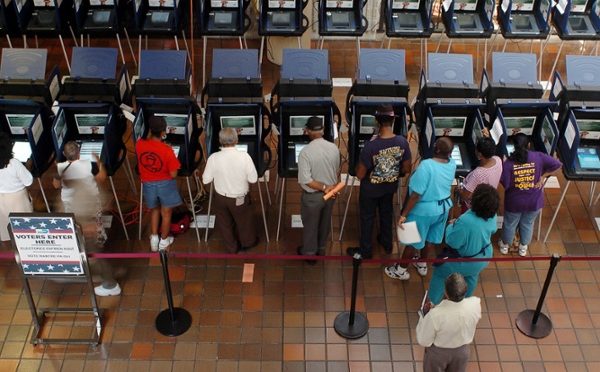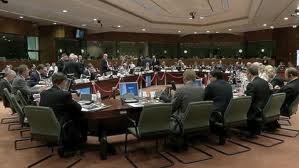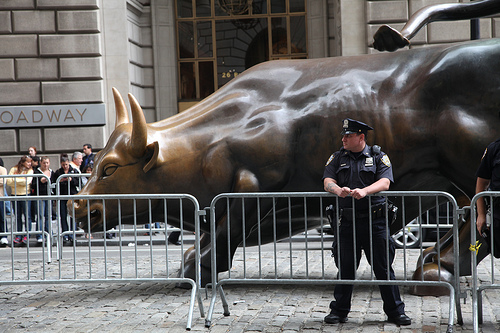
One can read the results of the 2014 mid-term elections in the United States in terms of whatever dominant political inkblot they favor. The narrative of the American right-wing, of course, is that the resounding Republican victories at both the Congressional and gubernatorial levels constituted a resounding repudiation by the voters of the Obama administration’s policies and pari passu the much vaunted progressivist politics that seemed to have finally taken solid root in American political soil with the 2008 election.
While the abuses of power and privilege in modern banking may not be as explicit as David’s crime, they are parallel. People in power tend not to consider the cost of their self-interest in communal terms. Most families who are facing foreclosure in New York City today are the victims of banks who regard a homeless child as a reasonable side effect of their profit motive just as David regarded Uriah’s death as a reasonable way to Bathsheba.

WRITING some 50 years ago, Archduke Otto Hapsburg, the last pretender to the crowns of Austria and Hungary, warned that economic cooperation alone would not satisfy the peoples of Europe and that European unification could not succeed unless it was imbued with an abstract principle. Only something as mystical, he wrote, as the Holy Roman Empire could give people hope, a sense of religious renewal and combat the pernicious effects of local interest, chauvinism, xenophobia and racism. Today’s European crisis indeed shows that great political institutions cannot be constituted solely on a rational basis or through the bureaucracy and incrementalism of Brussels.
Here we have one of the classic Advent themes associated with our preparations for the birth of Christ, but actually referring to John the Baptist as the forerunner of Jesus’ ministry 30 years later. I want to suggest an unorthodox and creative way of interpreting this text, one perhaps more in-keeping with the current context. We are inclined to ask ourselves “whose are the voices?” and “where is the wilderness?” I will reverse these questions in order to throw some light upon the nature of vocation and the reasons for the apparent frustrations of it.
The vision of God’s kingdom espoused in Isaiah 61 seems more “not yet” than “already.” Jesus identified the first two verses as a prophecy regarding himself, the Messiah, when he read from this chapter in Luke 4. In spite of Christ’s commitment to the least of these, large segments of the Western church insist on spiritualizing Christ’s mission so that it focuses on poverty of spirit or spiritual blindness—an interpretive move that allows injustice to persist unabated and unthreatened by prophetic witness.
It is unfortunate that the mainstream evangelical church owes its political stance more to John Stuart Mill than to Jesus. The members of many churches worship American individualism and the free market more than the ethical responsibility for the “other,” as encouraged by French philosopher Emmanuel Levinas, and ultimately Jesus himself. In On Liberty, Mill defends the rights of individuals to behave as sovereigns over themselves as long as others are not harmed. Unfortunately, many Christians have adopted this perspective, and the government is viewed as an oppressive behemoth bent on snatching away private liberties. What is not mentioned is that our individual economic decisions are often destructive to the overall well-being of fellow citizens.
The wilderness was not a place that good Romans went. In the view of Roman imperial cosmology, the wilderness was a place full of savage people to be subdued and conquered. The Augustus of Prima Porta statue, imaged here, shows precisely this view. The heavens come into alignment and the Gods look down in delight as the Parthian king surrenders to Rome. On either side, mourning barbarian women are curled in positions of submission. This is how Rome viewed the wilderness — the worlds of barbarian people and wild animals outside the boundaries of Roman control, and only fit into the Roman imagination once they had been subdued. This was the drama enacted regularly in the arena, where wild animals and foreign persons were slaughtered before adoring crowds.
This was the defense of a banker – as seen in a BBC interview Monday 7th November. Later that day, the long-awaited St Paul’s Institute report on its survey of London-based bankers was published. In advance of this a decision was made to interview a young woman from within the profession to get her response to the suggestion that there was a lack of morality in the City of London. I was so staggered by some of her responses to this challenge that I felt bound to try to draw out the logical consequences of what she had said. What follows is exactly that.
The image I have is of a balloon which now has too many people aboard and that, in order to stay airborne needs to throw some of its passengers overboard. I say this as what I believe is now happening is that too many people have been able to benefit from global capitalist growth over the last 20 years and that in a period of austerity and economic downturn access to the “goods” of global capitalism is going to be limited and rationed.

The main problem is, we the people have given and continue to give it to them. Notice in the text that it is not Aaron who first announces that the calf is the god that delivered Israel from Egypt. It is the people themselves who identify this false connection, just as we ourselves are complicit in this perverse deification of injustice.